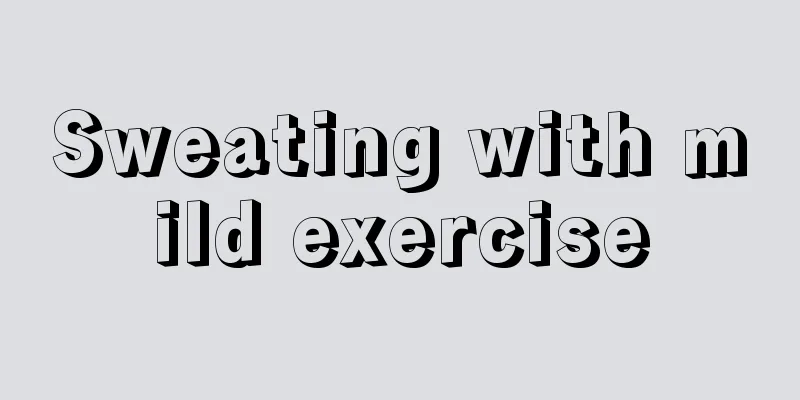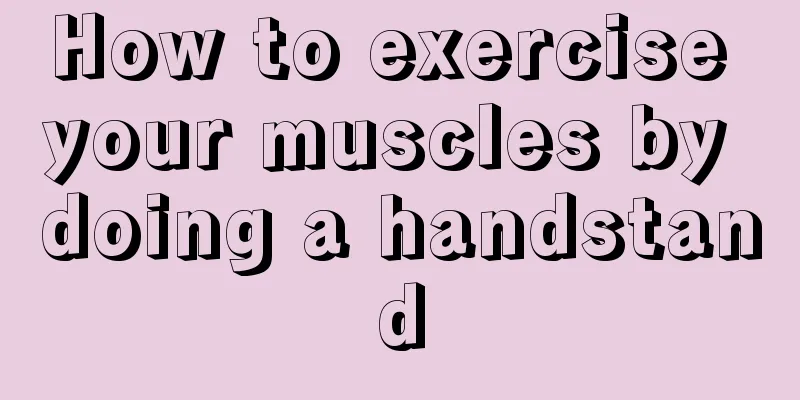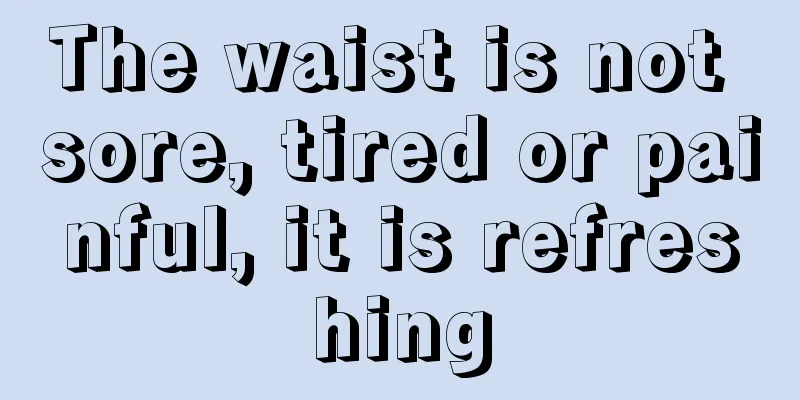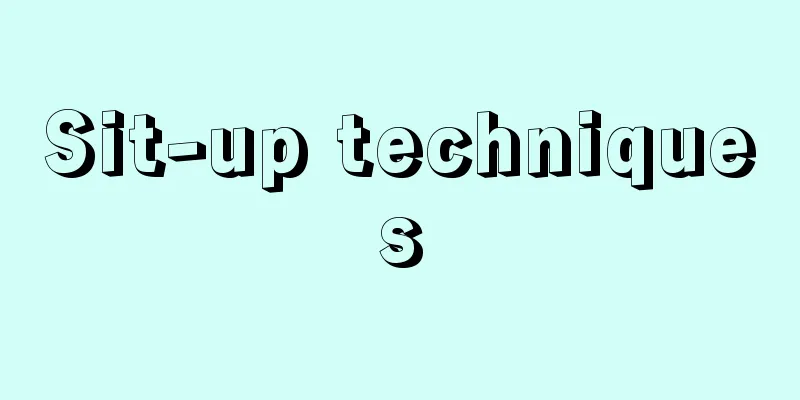Sweating with mild exercise

|
Most people will feel a lot of sweat on their skin after light exercise, but they will not feel too hot. In fact, moderate sweating is very good for people's bodies and can regulate body temperature. However, if the amount of sweating increases, it means that there is a problem with the body, such as night sweats, which mostly happen after people go to bed and get up. Sweating is a physiological function of the human body to excrete and regulate body temperature, but if the sweating pattern, amount, color and smell of sweat change, it can be a precursor to certain diseases and should be taken seriously. The following is an explanation of some common sweating phenomena from the perspective of traditional Chinese medicine: Spontaneous sweating Frequent sweating that is not caused by hot weather, taking diaphoretics or other stimuli is called "spontaneous sweating". Spontaneous sweating is mostly caused by weak lung qi, weak Wei Yang, and leakage of body fluids, and is therefore often accompanied by symptoms of Yang qi deficiency such as fatigue, weakness, shortness of breath, and chills. It is more common in children with rickets and patients with hyperthyroidism. Night sweats You sweat when you fall asleep and stop sweating when you wake up. Night sweats are mostly caused by Yin deficiency. Yin deficiency leads to Yang hyperactivity. Yin cannot control Yang, and body fluid turns into sweat. Therefore, it is often accompanied by symptoms such as fever in the five parts of the body, insomnia, and dry mouth and throat. Common in patients with infiltrative stage of pulmonary tuberculosis. War sweat That is, sweating followed by whole body shivering is a manifestation of the struggle between good and evil during the process of febrile disease. If the fever subsides after sweating, the pulse becomes calm and the body becomes cool, it means that the evil has gone away and the body is at peace, and the vital energy has recovered, which is a good phenomenon. If the limbs become cold and the patient becomes restless after sweating, it means that the body's health cannot overcome the negative energy and that the body's health becomes weaker, which is a serious symptom. War sweats are common in the early and middle stages of various infectious diseases. No sweat It refers to a critical condition, when the vital energy is weak and the Yang energy is about to be exhausted, the patient will sweat profusely, and is often accompanied by critical symptoms such as rapid breathing, cold limbs, weak pulse, and sometimes absent pulse. It is a sign that the Yang energy is about to be exhausted, and is more common in patients with heart failure and collapse. Head sweat Sweating is limited to the head. It is mostly caused by evil heat in the upper burner, or stagnation of damp heat in the middle burner, and is more common in Yangming heat syndrome and damp-heat syndrome. If it occurs after a serious illness, or in the elderly with shortness of breath and sweating on the forehead, it is mostly a symptom of deficiency. If a person suddenly breaks out in forehead with profuse sweat at the end of a serious illness, it is a dangerous sign that the yin is rising, the yin deficiency cannot attach to the yang, and the yin fluid is lost along with the qi. However, children often sweat on their heads when they sleep. If there are no other symptoms, it is not a sign of illness. Partial sweating Commonly known as "half-body sweat". It can be found on the left or right side, upper or lower body. They are all caused by wind-phlegm or rheumatism blocking the meridians, or insufficient nutrition and defense, or disharmony of Qi and blood. It is more common in patients with rheumatism or hemiplegia. If an elderly person sweats profusely, it may be a precursor to a stroke. Cold sweat Refers to fear of cold, cold limbs and sweating. There is no fever or thirst before sweating, and the patient is often accompanied by symptoms of cold such as lack of energy, pale complexion, loose stools, clear and long urine, slow and deep pulse, and pale tongue. It is mostly caused by Yang deficiency and insufficient Wei Qi, or it can be caused by fright. In addition, sweating on the palms often means that the mind is too nervous; sweating on the chest means excessive thinking; people who sweat frequently with the slightest movement are either too fat or too weak; the sweat of diabetics has a slight fragrance; the sweat of patients with cirrhosis has a special liver smell. |
<<: How to massage your baby before swimming?
>>: How much weight is too heavy for running?
Recommend
What are the precautions for standing long jump?
I took a physical fitness test a few days ago, wh...
What are the warm-up exercises before swimming?
Swimming is a sport that most people like in summ...
Is it better to run in the morning or in the evening?
In fact, many people who run are very confused ab...
What are the benefits of sit-ups for fitness?
Modern people pay more and more attention to thei...
What happens when you run during your period?
I don't know what will happen if I run during...
This shape of woman is the most perfect
How to show the curvy gourd-shaped figure? A thin...
What do you do in the morning?
Morning exercises are not just for middle-aged an...
Can sit-ups reduce thigh fat?
Can sit-ups help slim down your thighs? There are...
What kind of exercise is suitable for thin people
In daily life, there are many thin people who sit...
Pulley selection for abdominal muscle training
Many people choose pulleys when doing abdominal m...
Calf pain while running
Running is an outdoor sport we often do. Running ...
Why do my legs hurt after climbing a mountain?
Many elderly people may feel some pain in their l...
Three reasons to make women fall in love with summer
Strike a yoga pose, show off your brightly painte...
When is the best time to run for weight loss?
It's already autumn, but some people's mo...
Practical and effective yoga for men to lose weight
Can men also practice yoga? Yoga is an exercise t...









